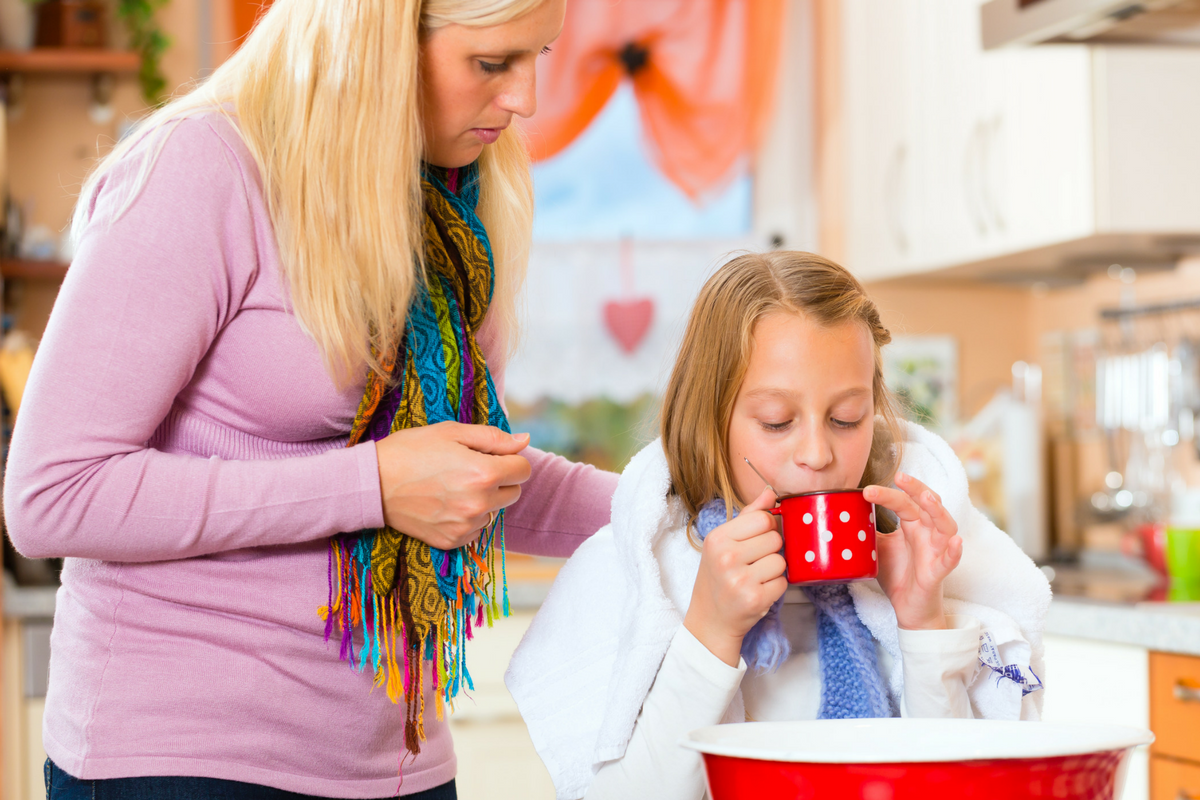It's Pneumonia Season: 6 Things You Need to Know
Could that cough be pneumonia? Here are answers to six common questions about this infection.

By Dr. Kate Cronan
Pneumonia is a very common illness in children. In fact, an estimated 156 million cases of pneumonia are diagnosed worldwide each year — and that’s just in children younger than 5 years old, according to the World Health Organization (WHO).
So here’s what you need to know about this infection that’s all too common around this time of year.
What is pneumonia, anyway?
Simply put, pneumonia is an infection of the lungs. It causes fever, coughing, and sometimes trouble breathing.
The good news is that most kids with pneumonia can be treated at home, and they usually get better in one to two weeks. However, in some cases, babies and children with certain other medical problems can get sicker and may need to be admitted to a hospital while they get better.
Is there a pneumonia “season?”
Your child may be more likely to get pneumonia after having a cold or the flu, because these illnesses make it harder to fight infection. So for that reason, you might say cold and flu season (that is, fall and winter) is also pneumonia season.
What are the types of pneumonia?
The most common kinds of pneumonia are viral and bacterial.
Most cases of pneumonia are caused by viruses. Some of the viruses that can cause pneumonia include influenza virus (flu), respiratory syncytial virus (RSV), adenovirus, and parainfluenza virus (which also causes croup).
Kids with viral pneumonia have symptoms that appear more gradually. Viral pneumonia can also last longer than bacterial pneumonia (caused by bacteria).
Bacterial pneumonia is often called community-acquired pneumonia (CAP). It’s caused by certain types of bacteria like Streptococcus pneumonia (or “pneumococcus”). Some of these bacteria usually live harmlessly on our skin and in our noses, and our immune system prevents the bacteria from causing pneumonia.
When kids get this type of pneumonia, they’ll likely get sick fairly quickly, starting with a high fever, coughing, and, sometimes, fast breathing.
If your child has bacterial pneumonia, the doctor will prescribe antibiotics to help speed recovery and prevent the infection from spreading to other household members. With treatment, most children start to feel better in a few days.
In both viral and bacterial pneumonia, kids may continue to cough for a few weeks after the infection is gone.
So what’s “walking pneumonia?”
Walking pneumonia, also called “atypical pneumonia,” isn’t an official medical classification. It usually just means a milder case of pneumonia.
Walking pneumonia is caused by bacteria that’s different than other pneumonia-causing bacteria. It’s called Mycoplasma pneumoniae.
Most kids with this type of pneumonia won’t feel sick enough to stay at home — so they “walk” around with it and often will feel well enough to go to school. But even if kids with walking pneumonia feel fine, they still need to stay at home for a few days until antibiotic treatment kicks in or symptoms improve.
Walking pneumonia can take up to four to six weeks to resolve completely. This type of pneumonia happens more often in school-age kids and teens. It’s often accompanied by sore throat, headache, rash, fever, and a hacking cough. Symptoms can come or suddenly or take longer to appear.
How can I keep my kids from getting pneumonia?
As always, there are some common things you can do to help protect your kids from getting any kind of respiratory infection:
Make sure your children wash their hands well and often. Pneumonia can be spread through coughing and sneezing, so any surface could contain droplets of germs.
Keep them up to date on their vaccines. Getting an annual flu shot helps prevent the flu. And some types of pneumonia can be prevented by the pneumococcal conjugate vaccine (PCV13) and pneumococcal polysaccharide vaccine (PPSV23).
Steer clear of anyone who’s sick. If pneumonia has already hit your household, keep the sick family member’s drinking glasses, plates, silverware, towels, and washcloths separate.
Make sure they stay hydrated, and get proper nutrition and rest to help keep their immune system healthy.
So when should I call the doctor?
It can often be hard to tell if kids just have a bad cold or if it’s something else like pneumonia or the flu. Contact your doctor if you think your child has any of the signs of pneumonia. And make sure to call right away if your child has:
Trouble breathing or is breathing too fast;
Bluish or gray fingernails or lips;
A fever above 100.4°F (38°C) in babies younger than 3 months old.
Learn More
Read more about pneumonia and walking pneumonia at Nemours’ website.
Dr. Kate Cronan is a pediatric emergency attending physician at Nemours/Alfred I. duPont Hospital for Children in Wilmington, DE, and a medical editor at Nemours Children’s Health Media.
Photograph by Kzenon for Canva.



NO COMMENTS